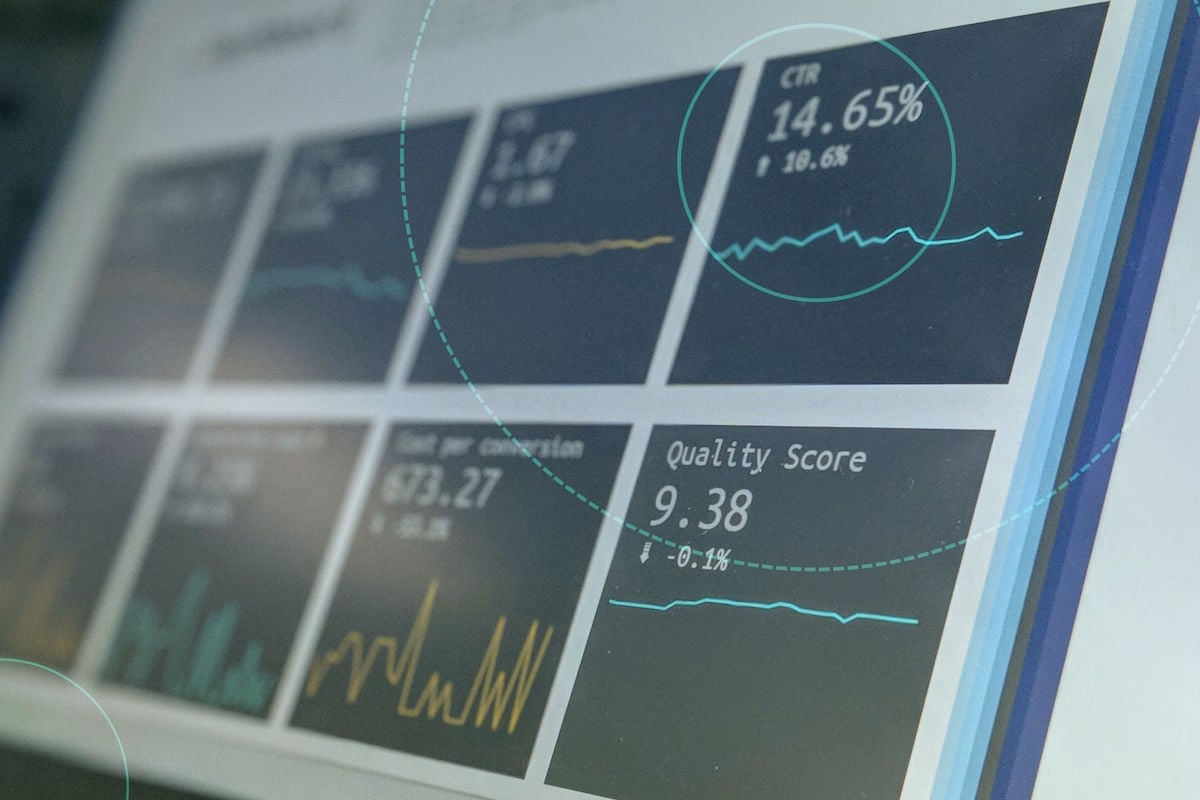Digital marketing is more complex than ever before. Thankfully, marketers have several tools to refine their strategies.
From crafting compelling content to navigating diverse channels, this guide equips you with the knowledge to build a robust online presence, connect with your audience, and drive measurable results. Whether you're a novice or a seasoned marketer, discover the key insights shaping the future of digital marketing and position your brand for success in the digital era.
Performance Marketing vs Digital Marketing
In the dynamic marketing landscape, two distinct strategies, performance marketing and digital marketing, emerge as key players with diverse approaches and outcomes. While performance marketing zeroes in on measurable actions and concrete results, digital marketing encompasses a broad spectrum of online activities, spanning social media to content creation.
Performance Marketing
Performance marketing is a results-oriented approach, emphasizing precision targeting and a data-driven strategy to achieve measurable goals. Unlike traditional methods, it adopts a pay-for-performance model, where advertisers pay solely for specific actions or results such as app installs, clicks, views, downloads, and sales. Its key components include setting measurable goals, optimizing campaigns based on real-time data, and achieving increased return on investment (ROI). Common channels for performance marketing include social media, search engines, and connected TV (CTV), each driving specific, measurable outcomes.
Digital Marketing
Digital marketing encompasses a broad range of online channels, promoting products, building brand awareness, and engaging with target audiences. It includes social media marketing, email marketing, SEO, content marketing, CTV marketing, and influencer marketing. Digital technology enables pay-for-performance models, aligning with performance marketing platforms. Leveraging these channels allows businesses to reach and engage customers with precision, fostering two-way communication, higher brand awareness, customer loyalty, and increased sales.
To determine the best digital strategy, marketers should analyze audience behavior, preferences, and traffic source performance. This ensures an effective marketing strategy aligned with business objectives and capable of driving meaningful results within budget constraints. A thoughtful consideration of these factors leads to a well-rounded marketing plan that resonates with the target audience and achieves business goals.
For more information, read Performance Marketing vs Digital Marketing: What’s the Difference?
Digital Marketing KPIs
Digital marketing KPIs are crucial metrics used to evaluate the success of digital marketing endeavors. Covering data points like website traffic, conversion rates, click-through rates, and social media engagement, KPIs allow companies to track and analyze key aspects of their campaigns, providing insights for improvement and informed decision-making. Here are just a few of the most important:
Impressions and Clicks
Impressions quantify the display frequency of an ad, while clicks measure user interactions. These metrics, tracked using ad-serving technology, aid in understanding ad reach and engagement.
Click-Through Rate (CTR)
CTR is a vital metric in advertising, calculated by dividing the number of clicks by impressions and multiplying by 100. A high CTR indicates effective audience engagement and relevance.
Cost Per Acquisition (CPA)
CPA assesses the efficiency of paid advertising campaigns, representing the total campaign cost divided by the number of conversions. It helps ensure advertising costs align with customer lifetime value (CLV).
To apply these metrics and others effectively, align them with marketing and sales funnel stages. Identifying areas with low conversions or revenue can inform strategic adjustments, ensuring a comprehensive understanding of success beyond revenue and conversions.
For more information, read The Big List of Digital Marketing KPIs.
The Role of a Digital Marketing DSP
Demand-side platforms (DSPs) play a pivotal role in bringing efficiency and precision to the sometimes chaotic world of online advertising. These platforms utilize advanced algorithms to automate ad placement, ensuring that advertisers can streamline and optimize their campaigns with data-driven insights, ultimately reaching the right audience at the right moment.
A demand-side platform is a software platform utilized by advertisers to automate the purchase of advertising inventory. In the context of digital marketing, DSPs serve as technology gatekeepers, connecting advertisers with multiple ad exchanges and networks. This automated process, encompassing real-time bidding and audience targeting, empowers advertisers to optimize their campaigns efficiently.
For more information, read What Role Does a Digital Marketing DSP Play?
Digital Marketing Strategy
A digital marketing strategy is a thorough plan outlining how a business will leverage online marketing channels to achieve its objectives. It involves defining the campaign's purpose, identifying the target audience, selecting appropriate online marketing channels (social media, email, content marketing, SEO, CTV advertising), and setting specific goals.
A well-designed strategy complements offline marketing efforts, supporting product launches, enhancing brand awareness, driving website traffic, generating leads, and increasing sales. It provides a roadmap for online marketing, ensures consistency across channels, and measures campaign success.
For more information, read How to Build an Effective Digital Marketing Strategy.
Digital Marketing Trends
Staying abreast of evolving digital marketing trends is pivotal for businesses aiming to outpace competitors, with shifts in consumer behavior and technological advancements dictating the need for adaptive strategies. The article delineates prominent trends that warrant attention for sustained relevance and engagement.
AI and Machine Learning:
The transformative impact of AI and machine learning on digital marketing is exemplified by Google Analytics 4. These technologies facilitate the creation of tailored messaging and personalized content while automating tasks like data analysis and customer segmentation. This allows marketers to allocate more time to strategic thinking and creativity.
Voice Search Optimization:
The surge in smart speakers necessitates online content optimization for voice search. Digital marketing strategies must now integrate specific voice-based interaction optimizations, aligning website content with natural language queries and incorporating relevant long-tail keywords. Adapting to consumers' use of voice assistants for information retrieval and online purchases is deemed essential.
Social Commerce and In-Feed Shopping:
Social commerce and in-feed shopping have revolutionized the consumer shopping experience by seamlessly merging social media with e-commerce. Shoppable posts on platforms like Facebook and Instagram enable users to browse and purchase products directly from their feeds. This integration has significantly influenced consumer behavior, allowing for product discovery and purchases within social platforms while enhancing brand visibility.
For more information, read Which Digital Marketing Trends Are Here to Stay?
Digital Marketing Channels
Digital marketing often involves strategically navigating a meticulous selection of channels that represent a diverse consumer landscape. From the precision of search engine marketing to the visual allure of social media, each channel plays a pivotal role in amplifying brand reach and engagement. Employing the best digital marketing channels can elevate campaigns, foster connections with audiences, and drive impactful results in an ever-evolving landscape. Here are a select few digital marketing channels that drive results:
SEO (Search Engine Optimization)
A robust SEO strategy improves search engine rankings, increasing exposure to potential customers and attracting qualified leads. Crafting an effective SEO strategy in 2024 requires some blend of local and enterprise SEO techniques, each targeting keywords to enhance visibility. Local SEO is vital for businesses catering to local customers, optimizing results in local searches. For larger businesses, enterprise SEO offers scalable consistency across platforms and marketing channels.
Content Marketing
Content marketing involves creating and distributing relevant content through blogs, videos, ebooks, and other channels. This content showcases expertise, provides value to potential customers, and strengthens brand positioning. Throughout the customer journey, content marketing creates awareness, nurtures consideration, and drives conversion, complementing other digital marketing channels.
CTV Advertising (Connected TV)
CTV advertising capitalizes on the benefits of video content displayed on large home screens. Platforms like Vimeo and YouTube host videos, expanding reach and engagement. Sharing video content on social media amplifies impact. CTV advertising on the largest home screen commands attention and leads to higher conversion rates.
Selecting suitable digital marketing channels necessitates a comprehensive understanding of business needs, industry dynamics, target audience behavior, and budget constraints. Assessing goals, industry relevance, and audience activity on specific platforms guides the strategic allocation of resources for optimal results. Crafting a nuanced approach that aligns with the unique characteristics of the business ensures effective channel selection in the diverse landscape of digital marketing.
For more information, read Digital Marketing Channels: The 7 Best Places to Run Your Next Campaign.
Make tvScientific Your CTV Partner
tvScientific was co-founded by senior executives with deep roots in search, programmatic advertising, digital media, and ad verification. We think scientifically, and our results are driven by a belief in one, simple formula: Trust = Data x Transparency x Control.
With powerful attribution capabilities, real-time reporting, automated optimization, and built-in, always-on testing, we believe that tvScientific provides the most robust, transparent, tailored CTV advertising platform. Once you see it for yourself, we know you will too. Request a demo today.







